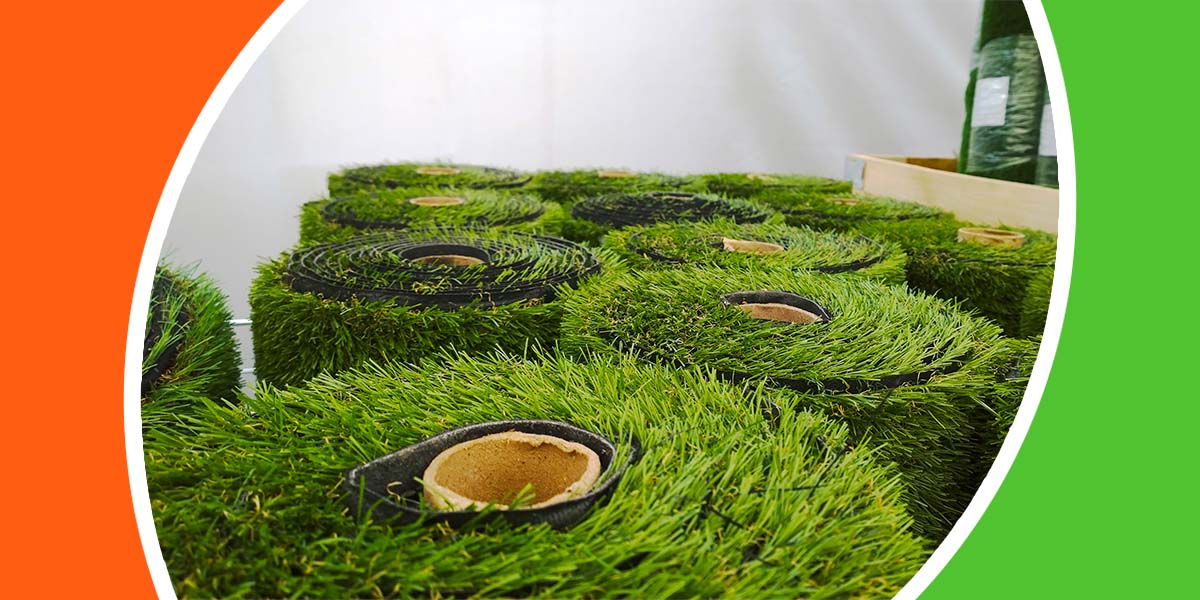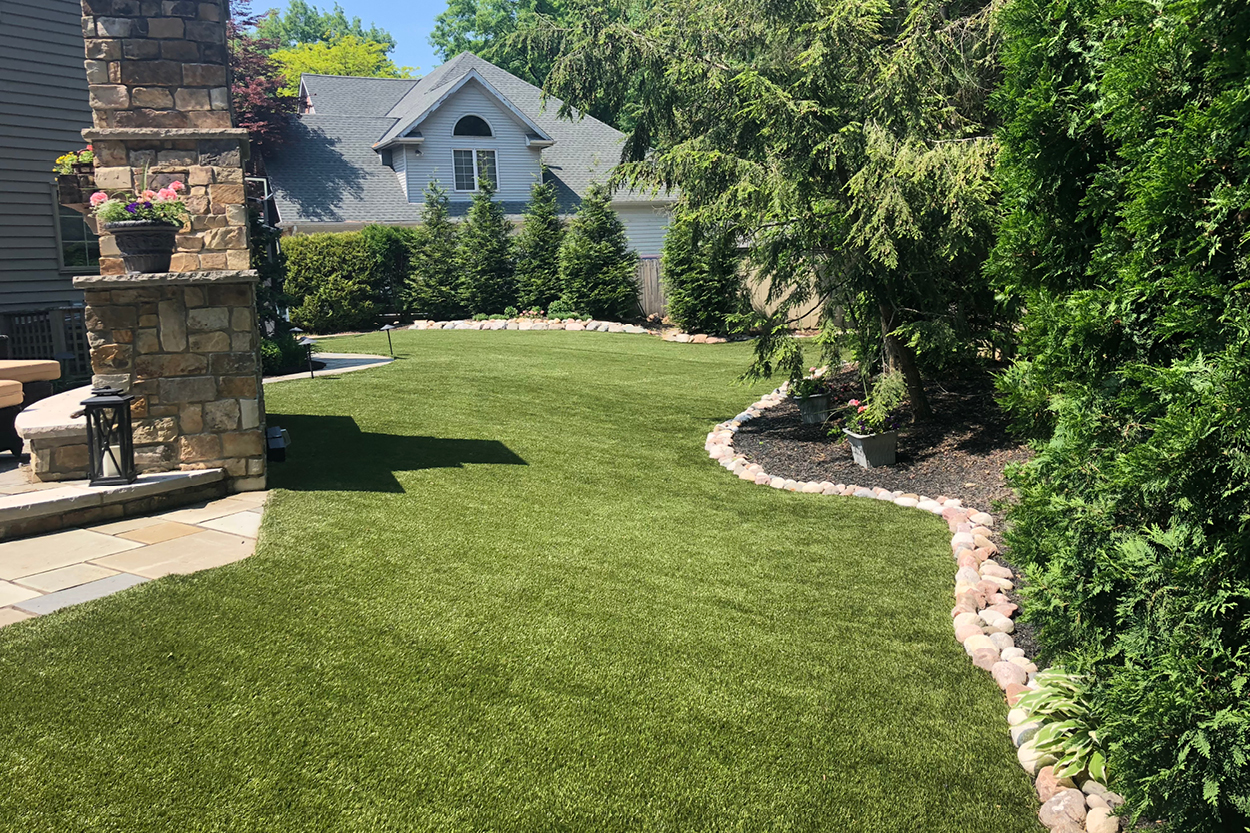See Why Homeowners Prefer Synthetic Grass for Sustainable Landscaping Practices
As home owners significantly prioritize sustainability in landscaping, synthetic grass has emerged as a compelling choice to traditional yard. What stays to be explored is the full extent of advantages that artificial turf can use to house owners and the setting alike.
Water Conservation Conveniences
Among the most substantial benefits of synthetic grass is its function in water preservation. Standard grass lawns require substantial amounts of water to maintain their lavish appearance, commonly leading to overuse of local water sources, especially in deserts. In comparison, artificial turf removes this need totally, as it does not require irrigation. This not just preserves water but also lowers the strain on community water systems, particularly during drought conditions.
Furthermore, the installment of synthetic grass can add to a more sustainable landscape. House owners can substantially reduce their water costs, permitting reallocation of resources to other ecological efforts or family usages. Furthermore, artificial turf is made to stand up to different climatic problems without the requirement for extra watering, making it a suitable option for regions encountering water scarcity.
The ecological benefits expand past prompt water financial savings. By lowering water intake, synthetic grass aids to minimize the effects of environment change, maintaining essential environments that are intimidated by excessive water removal. As lasting landscaping practices get grip, synthetic grass arises as an accountable choice for house owners seeking to develop green exterior areas.
Lowered Maintenance Efforts
Synthetic grass dramatically decreases upkeep efforts contrasted to traditional grass lawns. With synthetic turf, homeowners can remove the taxing tasks connected with all-natural landscaping, such as mowing, feeding, and weeding. This not just conserves valuable time however additionally minimizes physical labor, making yard treatment accessible for people of every ages.
One of one of the most noteworthy advantages is the lack of normal mowing. Typical grass need frequent trimming to maintain a cosmetically pleasing elevation, whereas synthetic grass stays continually lavish without the demand for cutting. Additionally, house owners no more require to apply chemicals or fertilizers, which are usually needed to keep all-natural grass healthy and balanced. This change not only lightens the workload however likewise advertises a neater, much more uniform look year-round.
Additionally, synthetic grass is sturdy and durable, calling for minimal upkeep beyond periodic brushing and washing to get rid of particles. This simplicity of maintenance allows homeowners to appreciate their outdoor areas without the consistent concern of maintenance, providing more time for leisure and family activities. Eventually, the decreased upkeep initiatives connected with fabricated lawn make it an enticing choice for those looking for a low-maintenance, aesthetically appealing landscape.

Ecological Effect Decrease
There is an expanding recognition of the environmental benefits connected with fabricated grass, specifically in regards to water preservation and decreased chemical usage. Standard lawns call for significant amounts of water, especially in drought-prone areas, resulting in boosted pressure on local water resources. On the other hand, synthetic grass gets rid of the demand for watering, dramatically minimizing water consumption and advertising sustainability.
In addition, standard lawn upkeep usually includes the application of herbicides, chemicals, and plant foods, which can add to dirt and water contamination. Synthetic grass mitigates this environmental risk by needing marginal maintenance and virtually eliminating the demand for harmful chemicals. This not only boosts soil health and wellness yet also shields local communities from hazardous drainage.
In addition, the production of natural turf lawns usually entails using fossil gas for trimming and landscape design equipment, more contributing to greenhouse gas exhausts. By selecting artificial lawn, property owners can dramatically decrease their carbon footprint related to grass treatment tasks.
Aesthetic Appeal and Flexibility
Along with its ecological benefits, fabricated grass offers substantial visual appeal and flexibility for landscaping. Homeowners can attain a lavish, green appearance year-round, eliminating the seasonal fluctuations commonly related to all-natural grass. This consistent aesthetic not only enhances the aesthetic appeal of a home however likewise contributes to a sleek and properly maintained appearance.
Furthermore, synthetic grass is readily internet available in a selection of shades, structures, and designs, allowing for personalization to match specific preferences and design themes - Arizona turf. Whether used in domestic yards, business areas, or recreational locations, it can seamlessly incorporate into varied landscape design layouts, from modern minimalist to lush tropical settings
The convenience of synthetic turf prolongs past mere appearance; it can be mounted in different locations, including rooftops, patios, and also interior rooms, developing chances for special landscape design remedies. In addition, it appropriates for a series of activities, from kids's play locations to pet-friendly settings, providing performance without compromising style.
Ultimately, the aesthetic charm and adaptability of man-made grass make it an attractive option for house owners looking for lasting landscape design options that do not compromise appeal for environmental duty.

Long-Term Cost Savings
One of the most compelling advantages of synthetic grass is its possibility for lasting price savings. Unlike all-natural yard, which needs normal upkeep-- consisting of mowing, watering, feeding, and insect control-- man-made lawn significantly lowers these ongoing expenses. Homeowners can conserve a considerable quantity on water expenses, specifically in areas where water shortage is a pressing issue. The elimination of grass care solutions additionally contributes to financial savings, as there is no demand for specific tools or labor.
Additionally, synthetic grass has a life expectancy of 15 to 25 years, depending on its quality and use. This durability lessens replacement expenses, making it an extra cost-effective option over time. The initial financial investment in man-made grass can typically be recovered via the financial savings accrued over time.
While the in advance cost might seem higher contrasted to turf setup, the cumulative savings from lowered maintenance and water usage commonly surpass these preliminary expenses. Ultimately, the adoption of fabricated grass not only promotes a lasting landscaping remedy but likewise uses property owners a financially smart option that lines up with lasting budgeting objectives.
Final Thought
Artificial lawn arises as a compelling choice for sustainable landscaping, offering significant benefits in water conservation, reduced upkeep initiatives, and reduced ecological influence. As areas significantly prioritize ecologically pleasant practices, the adoption of man-made grass stands for a dynamic action towards accomplishing sustainable and resistant landscapes.
Additionally, artificial grass is made to stand up to different climatic conditions without the demand for additional watering, making it an ideal selection for regions encountering water deficiency. (Phoenix turf companies)

Man-made grass arises as a compelling click this link choice for sustainable landscape design, supplying Source substantial benefits in water preservation, lowered upkeep efforts, and diminished ecological effect.